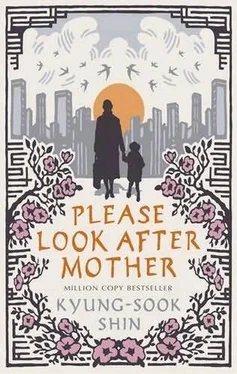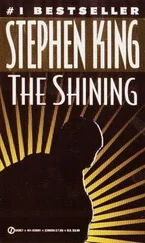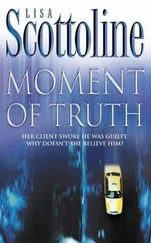Kyung-sook Shin - Please Look After Mom
Здесь есть возможность читать онлайн «Kyung-sook Shin - Please Look After Mom» весь текст электронной книги совершенно бесплатно (целиком полную версию без сокращений). В некоторых случаях можно слушать аудио, скачать через торрент в формате fb2 и присутствует краткое содержание. Жанр: Современная проза, на английском языке. Описание произведения, (предисловие) а так же отзывы посетителей доступны на портале библиотеки ЛибКат.
- Название:Please Look After Mom
- Автор:
- Жанр:
- Год:неизвестен
- ISBN:нет данных
- Рейтинг книги:4.5 / 5. Голосов: 2
-
Избранное:Добавить в избранное
- Отзывы:
-
Ваша оценка:
- 100
- 1
- 2
- 3
- 4
- 5
Please Look After Mom: краткое содержание, описание и аннотация
Предлагаем к чтению аннотацию, описание, краткое содержание или предисловие (зависит от того, что написал сам автор книги «Please Look After Mom»). Если вы не нашли необходимую информацию о книге — напишите в комментариях, мы постараемся отыскать её.
Told through the piercing voices and urgent perspectives of a daughter, son, husband, and mother, Please Look After Mom is at once an authentic picture of contemporary life in Korea and a universal story of family love.
You will never think of your mother the same way again after you read this book.
Please Look After Mom — читать онлайн бесплатно полную книгу (весь текст) целиком
Ниже представлен текст книги, разбитый по страницам. Система сохранения места последней прочитанной страницы, позволяет с удобством читать онлайн бесплатно книгу «Please Look After Mom», без необходимости каждый раз заново искать на чём Вы остановились. Поставьте закладку, и сможете в любой момент перейти на страницу, на которой закончили чтение.
Интервал:
Закладка:

Two girls run in through the side gate toward you, calling you, “Grandpa!” Tae-sop’s children, who live near the creek. They soon wander away from you, looking around the house. They must be looking for your wife. Tae-sop, who is running a Chinese restaurant in Taejon, left his two children with his elderly mother, who was so old she could barely take care of herself, and never showed his face. Perhaps he isn’t doing too well. Your wife always clucked her tongue when she saw the children, saying, “Even if Tae-sop is like that, what kind of person is Tae-sop’s wife to do this?” Neighbors whispered that Tae-sop’s wife and the restaurant’s cook had run away together. Your wife was the person who made sure the children ate, not their own grandmother. Once, your wife saw that they hadn’t eaten and brought them home to feed them breakfast; the next morning, the girls came over, sleep still in their eyes. Your wife placed two more spoons on the table and seated the girls; after that, they came by at each mealtime. Sometimes they would arrive before the food was ready and go lie on their stomachs and play, and when the table was set they would run over and sit down. They stuffed their mouths as if they would never see food again. You were flabbergasted, but your wife took their side, as if they were her secret granddaughters: “They must be so hungry to do that. It’s not like before, when things were difficult for us… It’s nice to have them around, it’s not as lonely.”
After the girls started to come for meals, your wife would, even in the morning, cook an eggplant dish and steam mackerel. When your children visited from Seoul with fruit or cake, she saved the treats until the girls poked their heads through the gate, around four in the afternoon. Soon enough, the girls started expecting snacks on top of three meals, and your wife also started to assume that she would feed them. You don’t know how she managed to feed the children when Pyong-sik, the owner of the store in town, had to bring her home because he found her sitting at the bus stop, not knowing which bus to take home. Or when she left to go to the garden to pick some adlay but was found sitting in the fields beyond the railroad by Ok-chol. What did the children eat during your absence? You didn’t think of the girls while you were in Seoul.
“Where’s Grandma, Grandpa?” the elder child asks you, figuring out that your wife isn’t here only after she has looked by the well and in the shed and the back yard and even opened the doors to the bedrooms. It’s the elder who asks the question, but the younger girl comes right up next to you, waiting for your answer. You want to ask the same thing. Really, where is she? Is she even in this world? You tell the children to wait, and you scoop some rice from the rice jar and wash it and put it in the electric rice-cooker. The girls run around, opening every bedroom door. As if your wife might walk out of one of the rooms. You pause, not knowing how much water to pour in, because you’ve never done this before; then you add about half a cup more and press the switch down.
That day, in the subway car leaving Seoul Station, how many minutes did it take you to grasp that your wife wasn’t there, in the moving subway car? You assumed that she had gotten on behind you. As the car stopped at Namyong Station and left it, you felt a sudden terror. Before you could examine the source of that feeling, something, despair that you had committed a grievous mistake that you couldn’t go back on, punched your soul. Your heart was beating so loudly that you could hear it. You were afraid to look behind you. The moment when you had to confirm that you’d left your wife in Seoul Station, that you’d boarded the train and traveled one stop away, the moment that you turned around, accidentally hitting the shoulder of the person next to you, you realized that your life had been irreparably damaged. It didn’t take even a minute to realize that your life had veered off track because of your speedy gait, because of your habit of always walking in front of your wife during all those years of marriage, first when you were young, then old, for fifty years. If you had turned around to check whether she was there right as you got on the car, would things have turned out this way? For years your wife used to make comments-your wife, who always lagged behind when you went somewhere together, would follow you with sweat beaded on her forehead, grumbling from behind-“I wish you’d go a little slower, I wish you’d go at my pace. What’s the rush?” If you finally stopped to wait for her, she would smile in embarrassment and say, “I walk too slowly, right?”
She would tell you, “I’m sorry, but what would people say if they saw us? If they saw us, who live together, but one person is all the way up there and the other person is all the way back here, they would say, Those people must hate each other so much that they can’t even walk next to each other. It’s not good to appear that way to other people. I won’t try to hold your hand or anything, so let’s just go slower. What are you going to do if you lose sight of me?”
She must have known what would happen. The thing your wife said to you most frequently, ever since you met her when you were twenty, was to walk more slowly. How could you have not gone slower, when your wife asked you to slow down your entire lives? You’d stopped and waited for her, but you’d never walked next to her, conversing with her, as she wanted-not even once.
Since your wife has gone missing, your heart feels as if it will explode every time you think about your fast gait.
You walked in front of your wife your entire life. Sometimes you would turn a corner without even looking back. When your wife called you from far behind, you would grumble at her, asking her why she was walking so slowly. And so fifty years passed. When you waited for her, she stopped next to you, her cheeks reddened, saying with a smile, “I still wish you’d go a little slower.” You assumed that was how you would live out the rest of your days. But since that day in Seoul Station when you left on the subway train, that day when she was only a few steps behind you, your wife still hasn’t come to you.
You raise your leg, the one that was operated on for arthritis, and prop it on the porch, watching the girls wolf down the undercooked rice with only kimchi as panchan. After the surgery, you no longer felt pain or had circulation problems, but your left leg became impossible to bend.
“Want me to put a hot pad on it?”
You can almost hear your wife say that. Her hands dotted with dark sunspots, her hands that would put a pot of water on the stove and dampen a towel with the hot water and place it on your knee even if you didn’t answer. Every time you saw her unshapely hands pressing down on the towel on your knee, you hoped that she would live at least one day longer than you. You hoped that, after you died, your wife’s hands would close your eyes one last time, wipe down your cooling body in front of your children, and put the shroud on you.
“Where are you?” you, whose wife is missing, who’s left behind, shout, your leg stretched out on the porch of the empty house, the girls having run off after they finished eating. You shout, trying not to succumb to the sobs that have been climbing to the top of your throat since your wife went missing. You couldn’t scream or cry in front of your sons or daughters or daughters-in-law, but now, because of the rage or whatever it is, tears are pouring down your face, unstoppable. Tears that didn’t come when your neighbors buried your parents, who died two days apart when cholera made the rounds in the village. Not yet ten years old, you couldn’t cry, even though you wanted to. After your parents’ burial, you walked down from the mountain, shivering, cold, and scared. Tears that didn’t course down your face during the war. Your family used to own a cow. During the day, when South Korean soldiers were stationed in the village, you plowed the fields with that cow. In those days, North Korean soldiers would come down from the mountains into the village under cover of night and drag away people and cows. When the sun set, you would walk into town with the cow, tie it up next to the police station, and go to sleep leaning on the cow’s stomach. At dawn you would bring the cow back to the village and plow the fields. One night, you didn’t go to the police station, because you thought the North Korean soldiers had left the area, but they swarmed into the village and tried to drag the animal away. You wouldn’t let go of the cow, even though they kicked you, beat you up. You ran after the cow, pushing aside your sister, who tried to block you from going, and even when you were beaten with the barrel of a rifle, you didn’t cry. You, who didn’t shed a tear when you were thrown into a water-logged rice paddy with other villagers, having been accused of being a reactionary because your uncle was a detective; you, who didn’t cry when a bamboo spear went through your neck-you are sobbing loudly. You realize how selfish you were to wish that your wife survived you. It was your selfishness that made you deny that your wife had a serious illness. In some corner of your heart, you must have known that your wife, who often appeared fast asleep when you came home at night, kept her eyes closed because her headache was so severe. You just didn’t think about it too hard. At a certain point, you knew that your wife would go outside to feed the dog, but instead would head for the well, or that she would leave the house to go somewhere but would stop in her tracks at the gate, not remembering where she was going, then give up and come back inside. You just watched as your wife crawled into the room, barely managing to find a pillow and lie down, a frown etched on her face. You were always the one in pain, and your wife was the one who looked after you. Once in a while, when your wife said her stomach hurt, you were the kind of person who would reply, “My back hurts.” When you were sick, your wife put a hand on your forehead and rubbed your stomach and went to the pharmacy for medicine and made you mung-bean porridge, but when she wasn’t feeling well, you just told her to take some medicine.
Читать дальшеИнтервал:
Закладка:
Похожие книги на «Please Look After Mom»
Представляем Вашему вниманию похожие книги на «Please Look After Mom» списком для выбора. Мы отобрали схожую по названию и смыслу литературу в надежде предоставить читателям больше вариантов отыскать новые, интересные, ещё непрочитанные произведения.
Обсуждение, отзывы о книге «Please Look After Mom» и просто собственные мнения читателей. Оставьте ваши комментарии, напишите, что Вы думаете о произведении, его смысле или главных героях. Укажите что конкретно понравилось, а что нет, и почему Вы так считаете.











